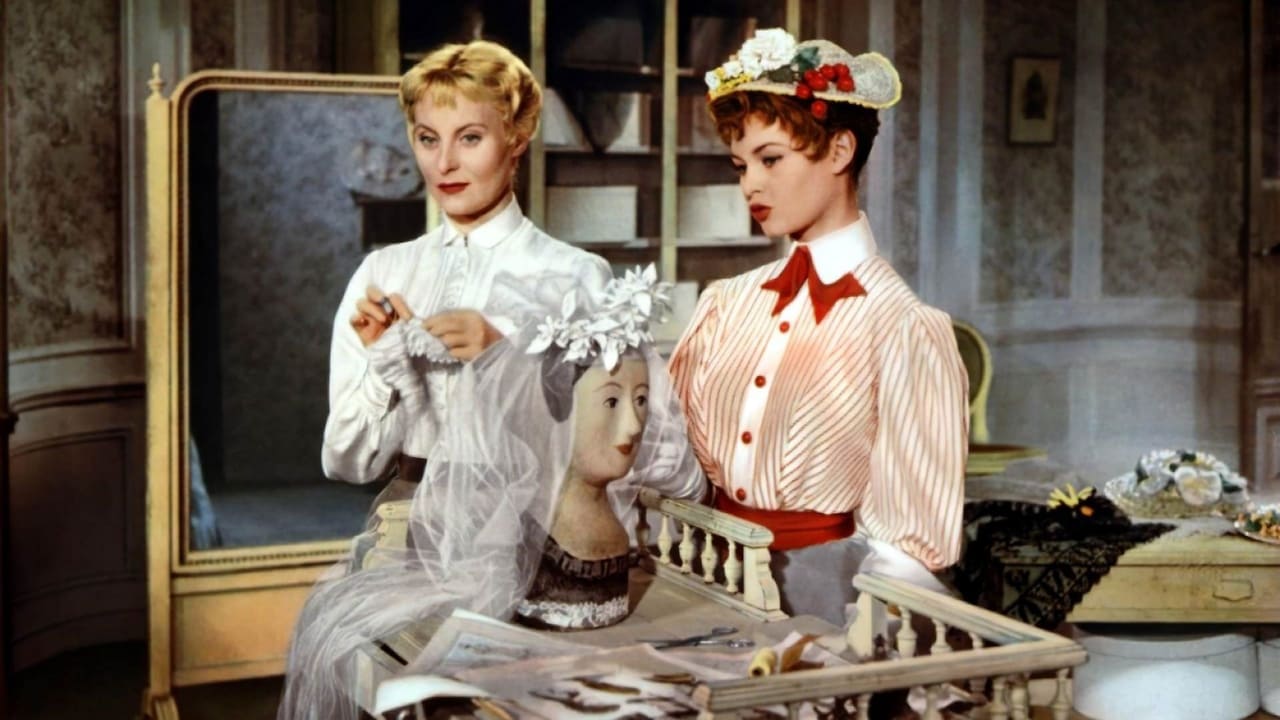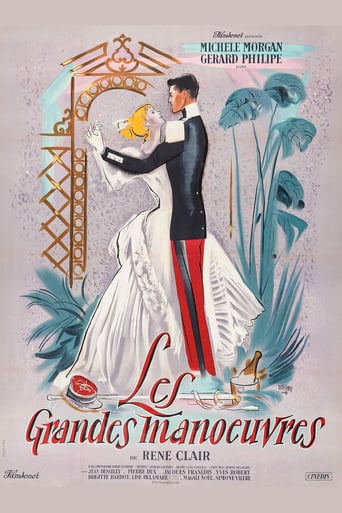Livestonth
I am only giving this movie a 1 for the great cast, though I can't imagine what any of them were thinking. This movie was horrible
Roy Hart
If you're interested in the topic at hand, you should just watch it and judge yourself because the reviews have gone very biased by people that didn't even watch it and just hate (or love) the creator. I liked it, it was well written, narrated, and directed and it was about a topic that interests me.
Lidia Draper
Great example of an old-fashioned, pure-at-heart escapist event movie that doesn't pretend to be anything that it's not and has boat loads of fun being its own ludicrous self.
Kirpianuscus
or, more precise, charming. for its delicate elegance , for the presence of Michele Morgan, Gerard Philippe and Brigitte Bardot, for the French spirit of a so old period and for impeccable performances. and, in same measure, for a form of... magic. because it is a simple story about appearances, love and seduction, about charm and bets, about an innocent age of Europe before the WW I. and this transforms the film of Rene Clair not only in a seductive work but in support for reflection about art and illusion and the work of remarkable actors."The Grand Maneuver" is a classic. but the motifs of this status are many and fragile. like a letter from a lost world. so, see it !
Bob Taylor
I'd seen only the great films from the 30's by this director, before enjoying this first color film from 1955. It is a light work with some sombre undertones from the military setting: we are after all in the summer of 1914, and the gallant young officers will soon be facing the terrors of the Great War. Clair reminds us that this world has vanished into the mists of time by the careful use of pastels--lavender, gray, pink--and by the camera receding into the distance: you hardly ever see a close up, most shots are long or medium. Leon Barsacq did a wonderful job as production designer; this is one of the best designed films I can remember seeing from this period.Gerard Philipe is the best Armand you could wish for--he's brave and skilled as a soldier and incredibly immature as a man. The idea that you can carry on affairs with five women at a time is no more than a logistical problem for him. Michele Morgan plays her part so well; she's got to be mature and responsible (she's a divorcée, and hasn't been long in this town). Her heart is pulling her in a direction her mind doesn't want to go. Jean Desailly reminds me once again that he's one of the finest French actors: his Victor isn't a stuffy bourgeois, his heart is with Marie-Louise and he knows what a formidable opponent Armand is. Also he's got to combat the closed minds around him, notably his sisters.Les Grandes manoevres can be compared to Rules of the Game, and if the Renoir classic is greater, it's because Renoir was dealing with more profound themes. I was engrossed in the story of this garrison town just the same.
J_Mucci
One shouldn't be dissuaded from seeing this film because of one disappointed viewer. It is a charming and beautifully crafted film, not often seen in the U.S., but well worth watching. It is very Gallic in its attitudes, which means that it has a certain amount of gallantry, chauvinism, sexism, and a plain, old-fashioned outlook on the sports of love, but it refuses to be pinned down to a formula, or to have a pat ending. I find it ever so much better than Clair's earlier work, and if you can shift your mental gears to the French way of thinking, it is a very rewarding, bittersweet film.
zetes
A womanizing soldier (circa WWI) makes a wager with his fellow soldiers that he will be able to seduce any woman chosen at random. The woman is chosen, he goes for it. You can probably guess most of the rest: he falls in love with her unexpectedly, she finds out about the wager, there is a question of whether they will ever truly get together, yada yada yada. Yes, it's that old plot. Perhaps Clair invented it, but I doubt it. It would later be used in every fourth movie ever made in the 1980s. I hoped that Clair could make it work. My favorite films of his are so effortlessly romantic that I expected him to be able to do it. Alas, he can't. This film lacks everything that made films like Le million charming and romantic. This one is cold and dull. I didn't like either of the leads. The man was completely despicable and the woman was frigid. Scenes move too quickly, and there is no feeling in them. The only bright spots are some nice cinematography (it was Clair's first film in color, and it looks as if the whole thing has been painted with watercolors) and a nice little supporting role by the enormously darling young Brigitte Bardot. 5/10.

